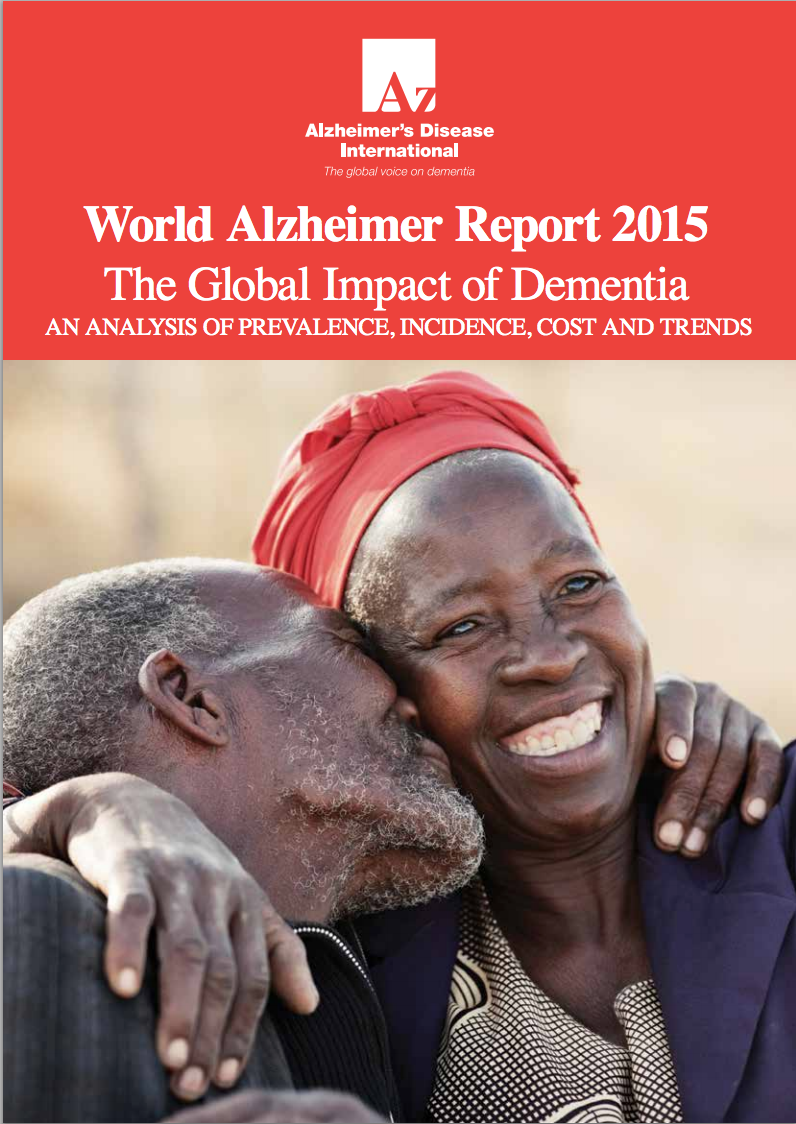
Senior living communities, as employers, have a role to play in memory care that extends beyond their residents to their employees, concludes the World Alzheimer Report 2015 [PDF], released Aug. 25 by Alzheimer’s Disease International.
The report’s findings “highlight that the workplace is a unique place to tackle dementia,” Graham Stokes, global director of dementia care at Bupa, an international provider of specialist dementia care and supporter of the report, said in a statement. “With almost half of the world’s population in employment and people staying in work for longer than ever before, employers have a responsibility to act, as they have the potential to make a huge difference. They can support people living with dementia and their carers, and also encourage healthy lifestyle changes which may reduce the risk of dementia.”
According the report, titled “The Global Impact of Dementia: An analysis of prevalence, incidence, cost and trends,” about 46.8 million people around the world currently live with dementia, with numbers projected to nearly double every 20 years, increasing to 74.7 million by 2030 and 131.5 million by 2050. More than 9.9 million new cases of dementia are diagnosed each year worldwide; that’s one new case every 3.2 seconds. Also, the report states, the current annual societal and economic cost of dementia is $818 billion, and that amount is expected to reach $1 trillion in three years.
The updated estimates are based on new research, led by Martin Prince, MD, of King’s College London, which considers both the growing numbers of older people as well as new and better evidence on the number of people living with dementia and the costs incurred.
Alzheimer’s Disease International makes these and other recommendations in the 2015 report:
• Primary care should be the key part of the health system to respond to the dementia challenge.
• Investment in dementia-related research should be increased so that it is proportionate to the societal cost of the disease. Research should be balanced among the areas of prevention, treatment, care and cure.
• Every country should develop its own national dementia plan or strategy as a framework for action across government sectors, and countries regularly should monitor the results and renew their plans.
• A Global Dementia Observatory, coordinated by the World Health Organization, should support and monitor policy development; monitor the scale of the epidemic; assess opportunities for prevention, their implementation and impact; and monitor progress toward increasing the available resources for treatment and care, and their coverage worldwide.
• Leadership of the G7’s Global Action Against Dementia should be transferred to the G20 group of nations.



